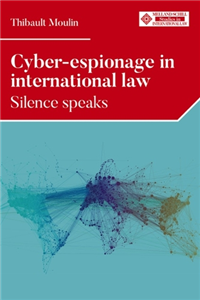Description
More Information
Rights Information
Albania, Algeria, Angola, Argentina, Armenia, Australia, Austria, Bahrain, Belgium, Belize, Benin, Bolivia, Bosnia and Herzegovina, Botswana, Brazil, Bulgaria, Burkina Faso, Burundi, Cameroon, Canada, Cape Verde, Central African Republic, Chad, Chile, China, Colombia, Comoros, Congo [DRC], Congo, Republic of the, Costa Rica, Ivory Coast, Croatia, Czech Republic, Denmark, Djibouti, Ecuador, Egypt, El Salvador, Equatorial Guinea, Eritrea, Estonia, Ethiopia, Faroe Islands, Finland, France, French Guiana, Gabon, Gambia, Georgia, Germany, Ghana, Greece, Guatemala, Guinea, Guinea-Bissau, Guyana, Honduras, Hongkong, Hungary, Iceland, India, Indonesia, Iran, Iraq, Ireland, Israel, Italy, Japan, Jordan, Kazakhstan, Kenya, Kuwait, Latvia, Lebanon, Lesotho, Liberia, Libya, Lithuania, Luxembourg, Macau, China, Macedonia [FYROM], Madagascar, Malawi, Malaysia, Mali, Malta, Mauritania, Mauritius, Mayotte, Mexico, Mongolia, Montenegro, Morocco, Mozambique, Namibia, Netherlands, New Zealand, Nicaragua, Niger, Nigeria, Norway, Oman, Pakistan, Panama, Paraguay, Peru, Philippines, Poland, Portugal, Puerto Rico, Qatar, Reunion, Romania, Russia, Rwanda, Saint Helena, Sao Tome and Principe, Saudi Arabia, Senegal, Serbia, Seychelles, Sierra Leone, Singapore, Slovakia, Slovenia, Somalia, South Africa, South Korea, Spain, Sri Lanka, Sudan, Suriname, Swaziland, Sweden, Switzerland, Syria, Taiwan, Tanzania, Thailand, Timor-Leste, Togo, Tokelau, Tunisia, Turkey, Uganda, Ukraine, United Arab Emirates, United Kingdom, United States, Uruguay, Venezuela, Vietnam, Western Sahara, Yemen, Zambia, Zimbabwe, South Sudan, Cyprus, Palestine, Bangladesh, Cambodia, Liechtenstein, Azerbaijan, Jamaica, Kyrgyzstan
Endorsements
While espionage between states is a practice dating back centuries, the emergence of the internet revolutionised the types and scale of intelligence activities, creating drastic new challenges for the traditional legal frameworks governing them. This book argues that cyber-espionage has come to have an uneasy status in law: it is not prohibited, because spying does not result in an internationally wrongful act, but neither is it authorised or permitted, because states are free to resist foreign cyber-espionage activities. Rather than seeking further regulation, however, governments have remained purposefully silent, leaving them free to pursue cyber-espionage themselves at the same time as they adopt measures to prevent falling victim to it. Drawing on detailed analysis of state practice and examples from sovereignty, diplomacy, human rights and economic law, this book offers a comprehensive overview of the current legal status of cyber-espionage, as well as future directions for research and policy. It is an essential resource for scholars and practitioners in international law, as well as anyone interested in the future of cyber-security.
Reviews
While espionage between states is a practice dating back centuries, the emergence of the internet revolutionised the types and scale of intelligence activities, creating drastic new challenges for the traditional legal frameworks governing them. This book argues that cyber-espionage has come to have an uneasy status in law: it is not prohibited, because spying does not result in an internationally wrongful act, but neither is it authorised or permitted, because states are free to resist foreign cyber-espionage activities. Rather than seeking further regulation, however, governments have remained purposefully silent, leaving them free to pursue cyber-espionage themselves at the same time as they adopt measures to prevent falling victim to it. Drawing on detailed analysis of state practice and examples from sovereignty, diplomacy, human rights and economic law, this book offers a comprehensive overview of the current legal status of cyber-espionage, as well as future directions for research and policy. It is an essential resource for scholars and practitioners in international law, as well as anyone interested in the future of cyber-security.
Author Biography
Thibault Moulin is an Associate Professor at the Catholic University of Lyon and a Research Associate at the Federmann Cyber Security Center of the Hebrew University of Jerusalem. He also serves as a Captain in the Reserve (RC) of the French Air and Space Force.
Manchester University Press
Manchester University Press is a leading UK publisher known for excellent research in the humanities and social sciences.
View all titlesBibliographic Information
- Publisher Manchester University Press
- Publication Date May 2023
- Orginal LanguageEnglish
- ISBN/Identifier 9781526168030 / 1526168030
- Publication Country or regionUnited Kingdom
- FormatPrint PDF
- Pages312
- ReadershipCollege/higher education; Professional and scholarly
- Publish StatusPublished
- Dimensions234 X 156 mm
- Biblio NotesDerived from Proprietary 5754
- SeriesMelland Schill Studies in International Law
- Reference Code15110
Manchester University Press has chosen to review this offer before it proceeds.
You will receive an email update that will bring you back to complete the process.
You can also check the status in the My Offers area

Please wait while the payment is being prepared.
Do not close this window.



